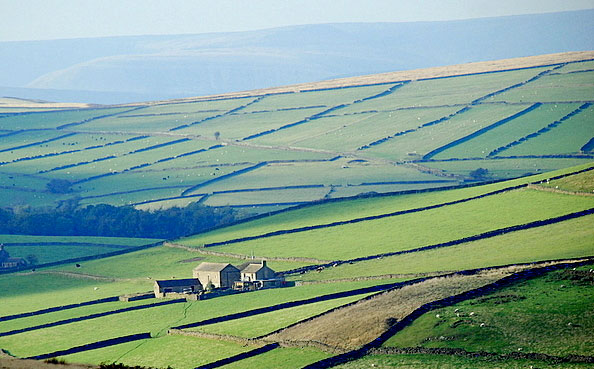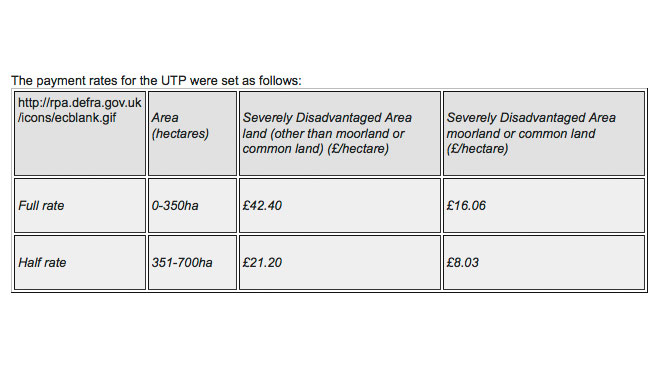
The Rural Payments Agency has paid out more than £2.9 million to beef and sheep farmers working on some of the most difficult terrain in England.
As of 14 June, the Agency had made Uplands Transitional Payments to 1,252 farmers which equates to 99 percent of those eligible for the money and more than 99 percent of the total value of the scheme being paid.
The total figure paid out so far is £2,980,716.
RPA Operations Director Paul Caldwell said: “This is another example of the Agency getting money to farmers quickly and efficiently, which is particularly important in what has been a difficult year for many.

“The money recognises the particular difficulties hill farmers face and the vital work they do in maintaining the English uplands and supporting rural communities in these areas.”
John Owen of NFU Cymru said: "A viable and profitable upland farming industry delivers on a number of wider social, economic and cultural activities – this is in addition to its role in food production and protection and enhancement of the environment."
The Tenant Farmers Association joined with the Livestock Auctioneers Association last year to host meetings focusing on the relationship between livestock and the uplands.
Both associations recognised that grazing livestock and its marketing systems are vital to the future of the uplands and more should be done to ensure its sustainability.
"With Natural England having abandoned its ill-conceived and unpopular vision for the uplands these meetings could not be taking place at a better time. We need a new vision for the uplands which is led by those with the true knowledge of the uplands - farmers, land managers, auctioneers and the local communities" said TFA National Chairman Jeremy Walker.
"The TFA advocates that farming in hill areas provides the most reliable and coherent basis upon which the management of our most beautiful and yet fragile landscapes and ecology will be sustained. The knowledge contained within the farming community in hill areas is invaluable and must be the primary source for new policy development," said Walker.
He went on to say that the hill areas have been badly affected by a number of shifts in policy.
Reward structures, the most significant of which was the introduction of the Single Payment Scheme in 2005, ended payments on breeding livestock rendering those enterprises in difficulty and now in decline.
"It is also vital to ensure that any support payments go to those farming the land rather than those who own it and bear none of the entrepreneurial risk" he said.
The Rural Payments Agency’s work helps the Department for Environment, Food and Rural Affairs to encourage a thriving farming and food sector and strong rural communities. RPA makes Common Agricultural Policy support payments, traces livestock and carries out inspections. We manage more than 40 schemes, paying farmers and traders more than £2 billion each year. To administer such a wide range of schemes and meet EU requirements we manage information on more than two million land parcels.
